Introduction to Paid Search Advertising: A Detailed Guide
- Home
- Introduction to Paid Search Advertising: A Detailed Guide
Understanding Paid Search Advertising
As a savvy marketer building a digital marketing plan, you must capitalize on paid search advertising to effectively reach your target audience. As a savvy marketer, you need to understand this powerful tool that can help you reach your target audience effectively.
The Dominance of Google in Search Advertising
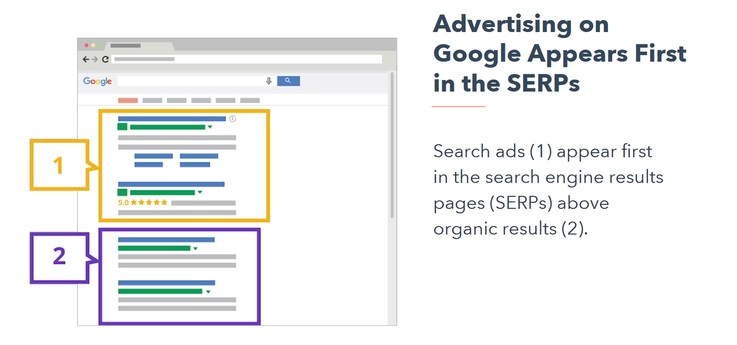
Google dominates the world of search engines, accounting for over 90% of all global searches. This makes Google Ads an indispensable platform for businesses looking to advertise online. With its vast user base, Google provides advertisers access to potential customers across different demographics and geographies.
Google's cutting-edge technology makes sure that ads are seen by users who could be likely to take an interest in the products or services depending on their past searches and behaviour. This targeted approach increases the likelihood of conversions and helps maximize return on investment (ROI).
Importance Of Paid Search Advertising
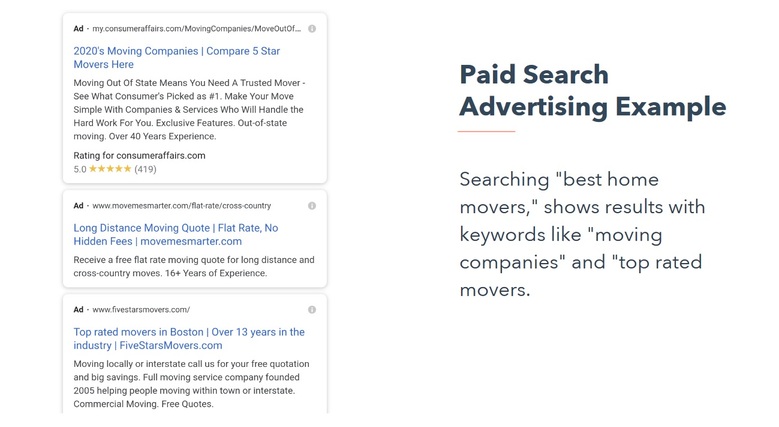
Paid search advertising plays a pivotal role in any effective digital marketing strategy because it allows businesses to:
- Achieve immediate visibility: Unlike organic SEO which takes time to yield results, paid advertisements appear at the top of SERPs instantly once they're live.
- Increase brand awareness: Even if users don't click on your ad immediately, seeing your brand name repeatedly can increase recognition and recall over time.
- Capture high-intent traffic: Users who use search engines are typically looking for specific information or solutions - by targeting relevant keywords, you can capture this high-intent traffic.
Beyond these benefits, one key advantage lies in control - you have complete authority over how much you want to spend per day or per click as well as when and where you want your ads displayed. You also get comprehensive analytics data from platforms like Google Keyword Planner, enabling strategic decision-making based on actual website performance metrics rather than assumptions.
Match Types Offered by Google Ads

Google Ads offers different match types to help you target your ads more effectively:
- Broad match: Your ad will show for searches that include your keywords in any order, as well as related searches.

- Phrase match: Your ad will show for searches that include your keywords in the same order, as well as searches that include additional words before or after your keywords.

- Exact match: Your ad will show for searches that include your keywords in the exact order you specify.

- Negative match: Your ad won't show for searches that include the specified keywords.
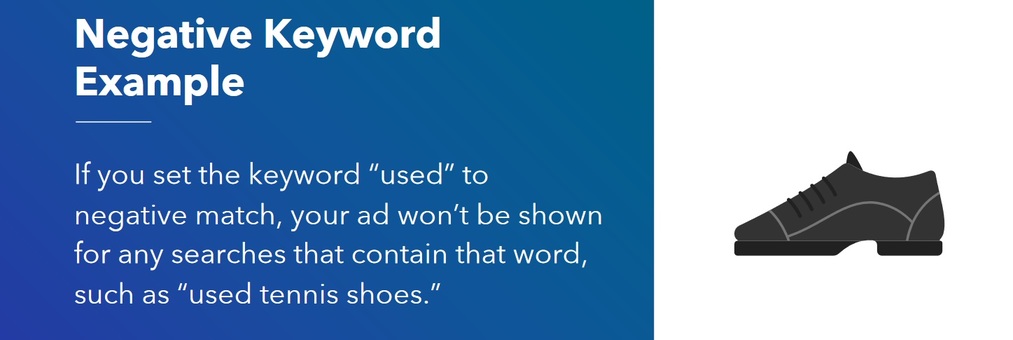
Choosing the right match type can help you reach your target audience more effectively and avoid wasting ad spend on irrelevant clicks.
Paid search advertising is a crucial tool for businesses looking to grow in the digital age, with Google Ads being an essential platform due to its dominance in the world of search engines. By targeting relevant keywords and utilizing different match types offered by Google Ads, businesses can achieve immediate visibility, increase brand awareness and capture high-intent traffic while having complete control over their ad spend.
Match Types in Google Ads: A Comprehensive Guide
If you're new to Google Ads, it's crucial to understand match types. These settings control how closely your keyword needs to match a person's search term before your ad is triggered. Google offers four primary match types: exact, phrase, broad, and broad match modifier.
Exact Match Type
The Exact Match type allows your ads to appear only when someone searches for your exact keyword or close variants of it. Close variants may include misspellings, singular or plural forms, abbreviations and acronyms; thus allowing for more precise targeting of a specific audience. This means you can target a specific audience with precision.

Phrase Match Type
A Phrase Match type triggers an ad when someone searches for your exact keyword phrase or close variations of that phrase. This match type is useful when you want to target a specific audience but also want to capture related searches. For instance, if you use 'organic coffee' as a Phrase Match keyword, any search query like 'buy organic coffee', 'best organic coffee brands', etc., can trigger your ad.

Broad Match Type
Broad matches offer maximum reach but less control over who sees your ads. They may show up whenever any word in the user's search query matches any word in the advertiser's chosen keywords. This means using Broad Matches could result in irrelevant clicks which might not convert into leads/sales making this option less cost-effective compared to others.

Broad Match Modifier
The Broad Modifier offers more control than Broad Matches by allowing advertisers to specify certain keywords that must be present for their ads to display while still providing flexibility on the order/sequence of those keywords within user queries. To implement this feature, simply add a '+' sign before each required keyword without leaving space between '+'.

Selecting the proper match type is essential to make sure your ads reach the right people and optimize your return on investment. By using the appropriate match type, you can effectively reach potential customers at different stages within their buying journey - from initial research through the final purchase decision-making process. So, choose wisely.
The article provides a comprehensive guide to the four primary match types in Google Ads: Exact, Phrase, Broad, and Broad Match Modifier. It explains how each type works and highlights their pros and cons. Choosing the right match type is crucial for reaching your target audience effectively while maximizing ROI.
Quality Score & Keyword Selection
When it comes to paid search advertising, understanding Google's Quality Score and how it affects keyword selection is crucial. It could be the line between a triumphant advertisement and an unsuccessful one.
What is Quality Score?

Google's Quality Score is a metric that evaluates the quality and relevance of your keywords and PPC ads. This score plays a significant role in determining your cost per click (CPC) and ad rank in the auction process. Essentially, it reflects how relevant your ad content is to users based on their search queries.
The score is calculated based on three factors:
- Ctr (Click-through rate): The ratio of users who click on a specific link compared to those who view the page or post containing that link.
- Ad Relevance: How closely related an ad group's keywords are to its advertisements.
- Landing Page Experience: A measure of how useful and user-friendly your website landing page is for people clicking through from your ads.
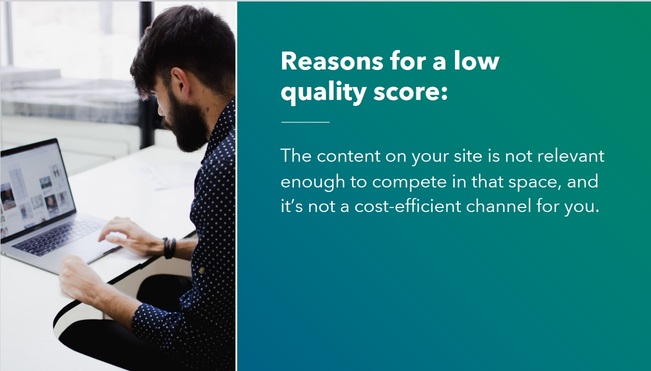
Choosing Keywords based on Quality Score
Choosing the right keywords is not just about guessing what potential customers might type into Google. It involves strategic planning around relevancy, competition levels, cost-per-clicks (CPC), and most importantly - quality scores.
A higher quality score generally leads to lower costs and better ad placements. Therefore, selecting high-quality-score keywords is crucial when setting up successful paid search campaigns. Tools like Google Ads' Keyword Planner can help you identify these high-scoring words by providing data such as estimated impressions, average monthly searches, and more, enabling smarter decision-making during the keyword selection process.
Using Target Audience Language in Ad Copy
To maximize engagement with our target audience, we need to speak their language - literally. Using vernacular terms commonly used by them while searching online helps increase relevancy, which could lead to improved results, including increased CTRs (Click Through Rates).
This means not only incorporating industry jargon but also regional slang or colloquialisms if applicable. For instance, if you're targeting young adults in the UK, using popular local phrases may resonate better than formal English terminology. Remember, though - always keep brand voice consistency intact throughout all marketing communications.
In summary, mastering the art and science behind Google's Quality Scores and selecting the right set of keywords is a vital part of any effective PPC strategy. Mastering Google's Quality Scores and selecting the right keywords is essential for optimizing PPC campaigns, yielding improved performance and ROI. So why wait? Start optimizing today.
Paid search advertising success relies heavily on understanding Google's Quality Score and selecting high-quality-score keywords that resonate with the target audience. Using tools like Google Ads' Keyword Planner can help identify these words, while incorporating regional slang or colloquialisms in ad copy can increase relevancy and improve results. Ultimately, mastering this complex system leads to improved campaign performance and ROI.
Creating Successful Paid Search Campaigns
In the world of digital marketing, creating successful paid search campaigns is crucial. Formulate a plan for success with your PPC venture by following these steps to guarantee the outcomes you desire.
Creating Ad Groups
The foundation of any effective PPC campaign lies in well-structured ad groups. It's similar to building a structured content framework. An ad group contains one or more ads that target a shared set of keywords. This allows you to organize your ads by common themes and align them closely with the specific products or services you offer.
- Determine Your Structure: First, determine your ad group structure. You might create separate ad groups for each product category on your website.
- Select Relevant Keywords: Next, select relevant keywords that potential customers may use when searching for products or services like yours online. Remember: relevance is key.
- Create Compelling Ads: Finally, create compelling ads that will attract clicks from users who see them in their search results. Make sure these ads clearly communicate what sets your business apart from competitors.
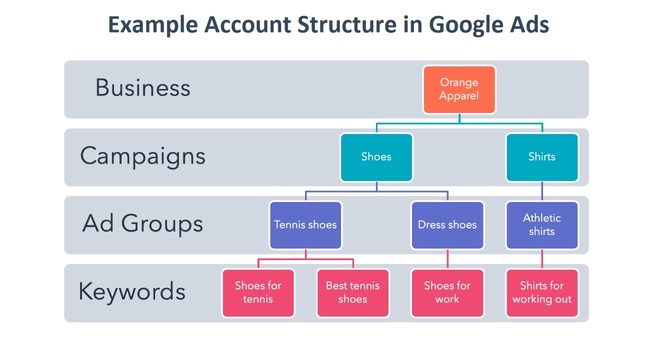
Building Effective Campaigns
A successful PPC strategy involves building effective overall campaigns.
- Budgeting & Bidding: Your budget determines how much money you're willing to spend on advertising over a certain period, while bidding decides how much you're willing to pay per click on each keyword. Budgeting and bidding strategically can help maximize return on investment (ROI).
- Campaign Settings: The settings chosen during campaign setup have a significant impact on where and when the advertisements appear. This includes choosing the right networks (Search Network only vs Display Network), devices (mobile vs desktop), locations, etc., based on where most likely prospects are found. Understanding these settings thoroughly ensures reaching out effectively towards targeted audiences.
To sum up, paid search advertising requires strategic planning and execution but can deliver impressive results if done correctly. With careful consideration of match types, quality scores, keyword selection, and the creation of structured ad groups and comprehensive campaigns, even businesses with limited resources can reach their growth targets efficiently through PPC strategies.
This section provides tips for creating successful paid search campaigns, including the importance of well-structured ad groups, selecting relevant keywords, and creating compelling ads. It also emphasizes the significance of budgeting and bidding strategically while choosing campaign settings that align with your target audience to maximize ROI. Overall, strategic planning and execution can lead to impressive results through PPC strategies even with limited resources.
FAQs in Relation to Introduction to Paid Search Advertising
What is paid search advertising?
Paid search advertising is when businesses pay to have their website appear at the top of search engine results for specific keywords.
What is PPC for beginners?
Pay-per-click (PPC) is when advertisers pay a fee each time someone clicks on their ad, essentially buying visits to their site.
Why is paid search advertising important?
Paid search advertising helps businesses reach more customers who are actively searching for products or services like theirs, increasing visibility and conversion rates.
What is the most popular platform for paid search advertising?
The most popular platform for paid search advertising is Google Ads, which displays ads in Google's search engine results pages (SERPs).
What to avoid when discussing paid search advertising?
- Avoid discussing other forms of digital marketing like social media advertising, video marketing or email marketing.
- Avoid discussing pricing and cost details of Google Ads or any other PPC platform.
- Avoid advanced topics like remarketing or conversion rate optimization, and keep it beginner-friendly.

